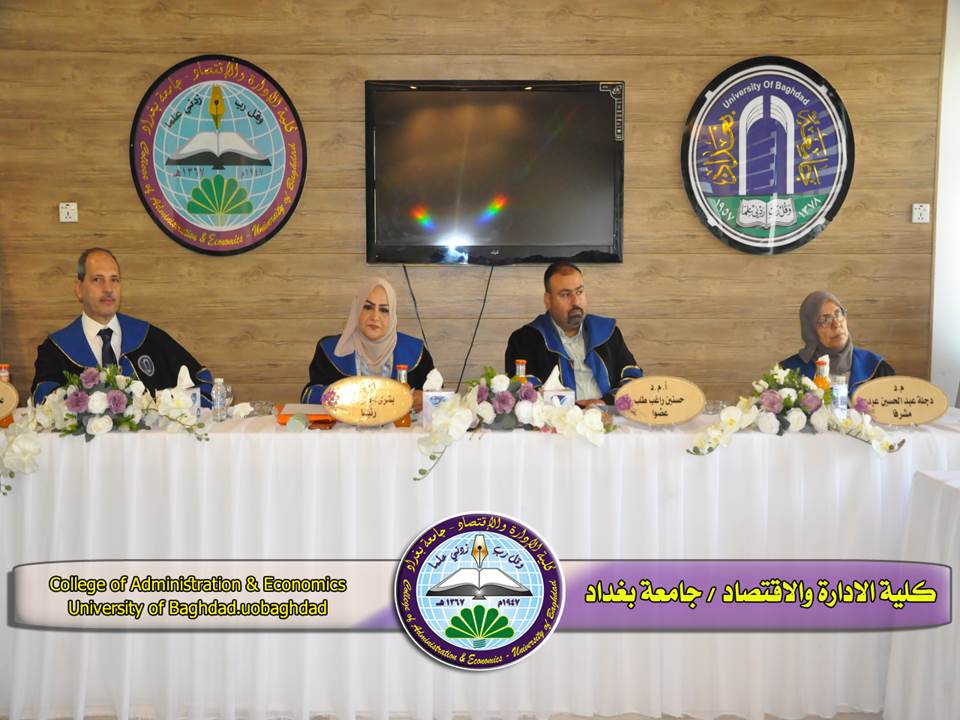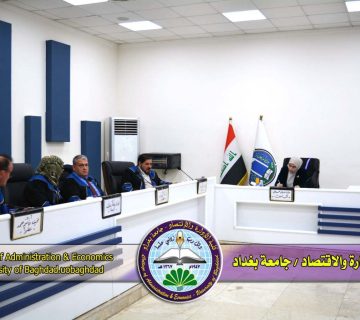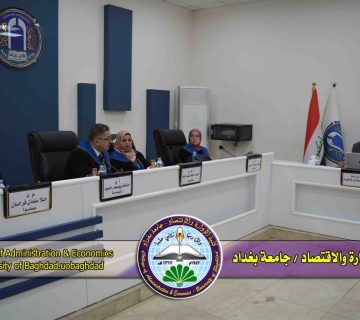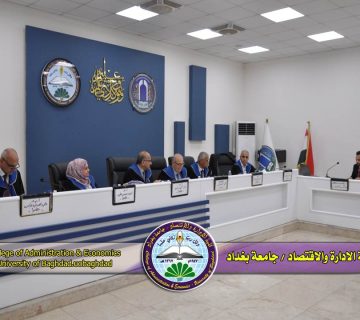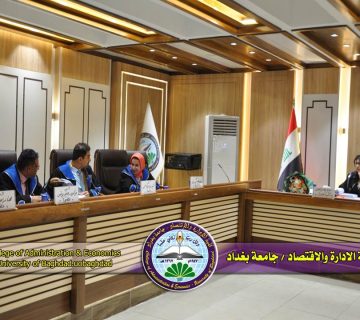The College of Administration and Economics at the University of Baghdad discussed , a master’s thesis in field of accounting by the student (Rashad Hamed Latief) and tagged with (The impact of electronic governance on financial control procedures and its impact on the performance of Iraqi economic units) , Under supervision of (Dr. Dijla Abdul Hussein Abed)
The research aims to identify the concept of electronic governance and its components, to identify the financial control procedures used in the Iraqi economic units under study and the extent of the impact of electronic governance in them, to identify the extent of the impact of electronic governance on banking performance. For the purpose of achieving the goal of the research, the researcher prepared a questionnaire that was distributed according to the five-point Likert scale, and the researcher relied on the deductive and inductive approaches, as the deductive approach was employed by studying the literature related to the subject of the research. The percentage was determined by the statistician, who are (12) banks as a sample for the research, and the respondents’ answers were analyzed through a set of statistical methods.
The researcher reached a set of conclusions and recommendations, and the most prominent conclusions reached are that the use of electronic governance achieves speed in data flow and information extraction, in reducing time and effort, and in providing tools that can meet the needs of customers at the lowest cost, and thus the application of electronic governance contributes to tracking Verifying the efficiency and effectiveness of the banking control system, although some Iraqi banks are still not interested in investing in financial technology and thus cannot keep up with the pace of development at the international level. Correlation and effect between the variables studied.
Among the most important recommendations he reached is the need to prepare future plans and programs to activate the application of electronic governance for its role in improving banking performance, and the need to include final reports on the extent of banks’ commitment to the principles of electronic governance, and the need to regularly evaluate financial control procedures in units that use electronic governance to identify weaknesses and develop Appropriate procedures to address them, and the need to develop the information technology infrastructure and work on developing the banking network to enable customers to perform their banking services easily and quickly without delay, and banks should be required to hold many training courses for employees in the field of electronic systems to keep pace with the rapid development in the provision of electronic services.
